2023 MIT CCSE Symposium
March 20, 2023
The 2021 MIT CCSE Symposium took place in-person on March 20, 2023 at the MIT Samberg Conference Center. Many thanks to all who took part, especially our invited speakers, Prof. Russel Caflisch (NYU), Prof. Faez Ahmed (MIT MechE), Prof. Laurent Demanet (MIT Mathematics), Prof. Raúl Radovitzk (MIT Aero Astro), and Prof. Haruko Wainwright (MIT NSE and CEE). Please see below for more information.
KEYNOTE
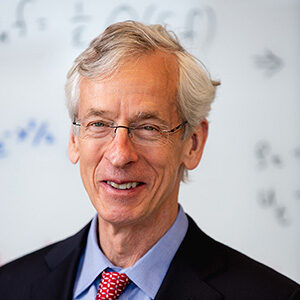 Optimization of the Boltzmann Equation
Optimization of the Boltzmann Equation
Russel E. Caflisch, PhD, Director, Courant Institute of Mathematical Sciences, New York University
Abstract
The kinetics of rarefied gases and plasmas are described by the Boltzmann equation and numerically approximated by the Direct Simulation Monte Carlo (DSMC) method. We present an optimization method for DSMC, derived from an augmented Lagrangian. After a forward (in time) solution of DSMC, adjoint variables are found by a backwards solver. They are equal to velocity derivatives of an objective function, which can then be optimized. This is joint work with Yunan Yang (ETH & Cornell) and Denis Silantyev (U Colorado, Colorado Springs).
Bio
Russel Caflisch is an applied mathematician whose research is on analysis and numerical methods for physical sciences. He is known for analysis of the fluid dynamic limit in kinetic theory and of vortex sheets in incompressible flow, for mathematical modeling of epitaxial growth, and for development of Monte Carlo methods for kinetic theory and finance. He is currently director of the Courant Institute of Mathematical Sciences at New York University and was director of the Institute for Pure and Applied Mathematics (IPAM) at UCLA 2008-2017. Caflisch graduated from Michigan State University with a BS in mathematics in 1975, and received his PhD in mathematics in 1978 at the Courant Institute, NYU. He held faculty positions at Stanford University, NYU and UCLA, before returning to NYU in 2017. He was a recipient of a Hertz Graduate Fellowship and a Sloan Research Fellowship. He is a fellow of the Society for Industrial and Applied Mathematics, the American Mathematical Society, and the American Academy of Arts and Sciences, and is a member of the National Academy of Sciences.
MIT FACULTY TALKS
 From Data to Design: Rethinking Design Synthesis with Deep Generative Models
From Data to Design: Rethinking Design Synthesis with Deep Generative Models
Faez Ahmed, PhD
d’Arbeloff Career Development Assistant Professor, Department of Mechanical Engineering, MIT
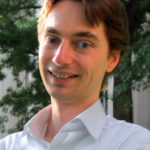 Deep redatuming for physical systems
Deep redatuming for physical systems
Laurent Dement, PhD
Professor of Applied Mathematics
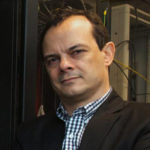 A discontinuous-Galerkin finite-element framework for large-scale simulation of the thermo-chemo-mechanical response of materials and structures in hypersonic environments
A discontinuous-Galerkin finite-element framework for large-scale simulation of the thermo-chemo-mechanical response of materials and structures in hypersonic environments
Raúl Radovitzky, PhD
Jerome C. Hunker Professor, Department of Aeronautics and Astronautics, MIT
Associate Director, MIT Institute for Soldier Nanotechnologies
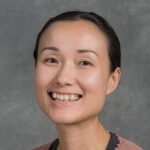 Physics-infused Environmental Monitoring for Soil and Groundwater Contamination
Physics-infused Environmental Monitoring for Soil and Groundwater Contamination
Haruko Wainwright, PhD
Norman. C. Rasmussen Career Development Assistant Professor, Department of Nuclear Science and Engineering
Assistant Professor, Department of Civil and Environmental Engineering
CSE MATHWORKS RESEARCH PRIZES
 Rashmi Raavishankar
Rashmi Raavishankar
Rashmi’s research explores photovoltaics detection and mapping on satellite imagery using deep learning techniques. In her CSE SM thesis, she proposed, optimized, and validated deep learning frameworks to detect rooftop and commercial photovoltaics. It presents the detection of solar farms across geographies using a state-of-the-art semantic segmentation convolutional neural network, trained on an original dataset created by collecting and pixel-wise annotating satellite image tiles of several major solar farms in the US and tested on images of farms unseen by the model. The model achieved highly competitive performance metrics and was found to detect spaces between panels, producing segmentation output better than human labeling, and some of the most accurate detection imagery presented in literature . A new capacity evaluation model was proposed showing that it is possible to arrive at estimates of panel count and validate both detected areas and generation capacities against publicly available data. Rashmi is an MIT Energy Fellow, a Matthew Isakowitz fellow, and the co-president of Graduate Women in Aerospace Engineering (GWAE).
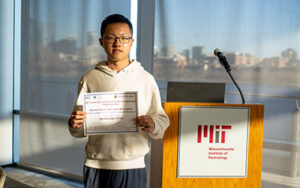 Songchen Tan
Songchen Tan
Songchen Tan’s research work focuses on the development of TaylorDiff.jl, an automatic differentiation package optimized for fast higher-order directional derivatives. Existing packages for calculating higher-order derivatives in physical models like ODEs and PDEs often suffer from exponential scaling with respect to the order of differentiation or the dimension of the problem. TaylorDiff.jl addresses these issues by utilizing advanced techniques such as aggressive type specializing, metaprogramming, and symbolic computing. The package is designed to achieve linear scaling with the order of differentiation and is composable with other AD systems, making it suitable for use in scientific models that require higher-order derivatives.
CCSE STUDENT POSTER SESSION BEST POSTER AWARD
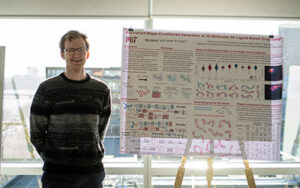 Keir Adams, ChemE-CSE PhD Student
Keir Adams, ChemE-CSE PhD Student
Equivariant Shape-Conditioned Generation of 3D Molecules for Ligand-Based Drug Design
Shape-based virtual screening is widely used in ligand-based drug design to search chemical libraries for molecules with similar 3D shapes yet novel 2D graph structures compared to known ligands. 3D deep generative models can potentially automate this exploration of shape-conditioned 3D chemical space; however, no existing models can reliably generate geometrically realistic drug-like molecules in conformations with a specific shape. We introduce a new multimodal 3D generative model that enables shape-conditioned 3D molecular design by equivariantly encoding molecular shape and variationally encoding chemical identity. We ensure local geometric and chemical validity of generated molecules by using autoregressive fragment-based generation with heuristic bonding geometries, allowing the model to prioritize the scoring of rotatable bonds to best align the growing conformation to the target shape. We evaluate our 3D generative model in tasks relevant to drug design including shape-conditioned generation of chemically diverse molecular structures and shape-constrained molecular property optimization, demonstrating its utility over virtual screening of enumerated libraries.
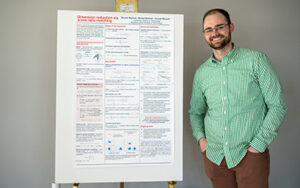 Michael Brennan, AeroAstro-CSE PhD student, Uncertainty Quantification Group
Michael Brennan, AeroAstro-CSE PhD student, Uncertainty Quantification Group
Dimension reduction via score ratio matching
We propose a method to detect a low-dimensional subspace where a non-Gaussian target distribution departs from a known reference distribution (e.g., a standard Gaussian). We identify this subspace from gradients of the log-ratio between the target and reference densities, which we call the score ratio. Given only samples from the target distribution, we estimate these gradients via score ratio matching, with a tailored parameterization and a regularization method that expose the low-dimensional structure we seek. We show that our approach outperforms standard score matching for dimension reduction of in-class distributions, and that several benchmark UCI datasets in fact exhibit this type of low dimensionality.
The 2023 MIT CCSE Symposium was held on Monday, March 20, 2023.
